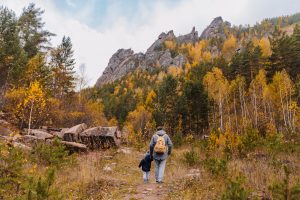Improving Dementia Care in Rural and Remote Communities: Actions for Moving Forward

Globally, nearly 50 million people live with dementia, and there are almost 10 million new cases per year. Data shows that dementia and cognitive impairment are more prevalent among rural seniors than urban older adults [1]. Rural and remote communities across North America often face unique challenges in accessing dementia care compounded by limited public transportation, finances, health services, access to information, and issues of stigma [2].
Recently in 2019, the Government of Canada released a national dementia strategy focused on the need to prevent dementia, advance therapies, find a cure, and overcome stigma to improve the quality of life of people affected by dementia [3]. Research shows that dementia-related stigma may delay early dementia diagnosis and lead to social isolation, depression, spousal hiding, and a decreased quality of life [4]. Despite this knowledge, there is little research on ways to reduce stigma and support people living with dementia outside of large urban centres.
Led by Dr. Juanita Bacsu at the University of Regina, a team of researchers is working to identify key actions and strategies to support older adults with dementia living in rural and remote communities. While her group’s work draws on Saskatchewan, Canada as a case study, other jurisdictions across North America face similar situations. This discussion was recently featured in the Canadian Journal of Public Health and identifies key actions for prioritising rural and remote dementia care, ranging from community collaboration to evidence-informed research [5].
- Community collaboration is critical
Collaboration and partnership are essential with people in rural and remote communities as they can provide local knowledge and insight necessary to develop community-based solutions to reduce stigma and improve the quality of life for people affected by dementia.
- Evidence-informed research: the key to moving forward
More research is necessary to build an evidence-informed knowledge-base to address issues of dementia-related stigma and better understand the unique needs of rural and remote people living with dementia and their care partners.
Her team’s work sheds light on some of the strengths, challenges, and actions necessary to improve dementia care in rural and remote communities. However, substantial work remains to support people affected by dementia living in rural and remote areas. Dr. Bacsu’s ongoing research draws on solution-focused theory and uses a community-based research approach to foster innovative solutions to reduce dementia-related stigma and improve the quality of life for people affected by dementia.
Dr. Bacsu’s work is funded by the Alzheimer’s Society of Canada and is supported by the Saskatchewan Population Health and Evaluation Research Unit. For more information, please visit the website www.spheru.ca.
Reference
[1] Weden, M., Shih, R., Kabeto, M., Langa, M. (2017). Secular Trends in Dementia and Cognitive Impairment of U.S. Rural and Urban Older Adults. Retrieved from https://www.sciencedirect.com/science/article/abs/pii/S074937971730644X
[2] Bacsu, J., Abonyi, S., Viger, M., Morgan, D., Johnson, S., Jeffery, B. (2017). Examining Rural Older Adults' Perceptions of Cognitive Health. Retrieved from https://www.ncbi.nlm.nih.gov/pubmed/28537218
[3] Government of Canada. (n.d.) A Dementia Strategy for Canada: Together We Aspire. Retrieved from https://www.canada.ca/en/public-health/services/publications/diseases-conditions/dementia-strategy.html
[4] Azheimer’s Disease International. (2012). World Alzheimer Report 2012: Overcoming the stigma of dementia. Retrieved from https://www.alz.co.uk/research/world-report-2012
[5] Juanita, B., Nuelle, N., Shanthi, J., Marc, V., Thomas, M., Bonnie, J., Nazeem, M., Paul, H. (2019). Addressing the Needs of Rural and Remote People in a National Dementia Strategy for Canada. Retrieved from https://link.springer.com/article/10.17269%2Fs41997-019-00241-0
IFA Guest Blogger: Dr. Juanita Bacsu is a post-doctoral fellow in the Faculty of Kinesiology and Health Studies at the University of Regina and the Saskatchewan Population Health and Evaluation Research Unit at the University of Saskatchewan. Her research focuses on cognitive health, dementia, and aging in rural and remote communities. She has been a board member of the Canadian Rural Health Research Society since 2011. Click here to like Healthy Aging in Place on Facebook.
Follow Dr. Bacsu’s works here.
IFA Guest Blogger: Dr. Shanthi Johnson is the Dean and professor at the School of Public Health at the University of Alberta. She is a former Associate Dean of (research and graduate studies) in the Faculty of Kinesiology and Health Studies at the University of Regina, Canada.
Read more about Dr. Johnson here.
Disclaimer: The views and opinions expressed in this blog are those of the authors and do not necessarily reflect official policy or position of the International Federation on Ageing and its employees or any other agency, organization, or company.


